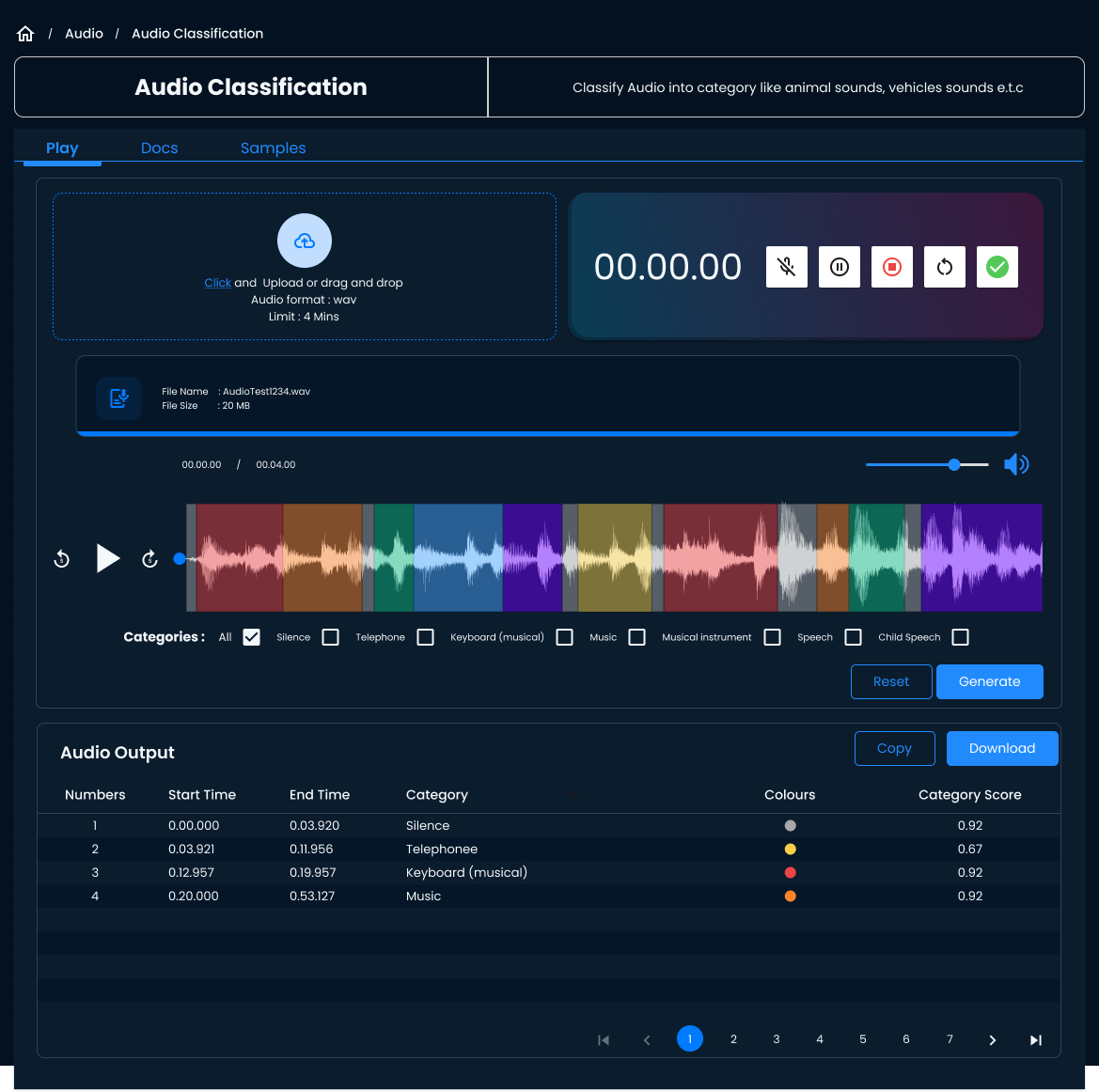Product
Human expertise and clinical judgment are crucial for accurate diagnosis and patient management. AI-assisted cardiology, particularly in the context of pediatric cardiography, is gaining significant attention due to its potential to revolutionize cardiac diagnostics and timely patient care.
Nure FutureTech's AI-powered Pediatric Echo-Cardiography PEC leverages human-like cognitive algorithms to enhance decision-making by delivering precise insights, impactful interventions, and valuable contributions to diagnostics, treatment variability, patient care, and outcomes.


Nure FutureTech's AI-powered Pediatric Echo-Cardiography PEC leverages human-like cognitive algorithms to enhance decision-making by delivering precise insights, impactful interventions, and valuable contributions to diagnostics, treatment variability, patient care, and outcomes.
Recognizes and interprets pediatric cardiography images (optimal and sub-optimal) and videos to identify patterns and features indicative of specific heart abnormalities.
Enables automatic detection and measurement of various cardiac parameters, such as chamber dimensions, wall thickness, ejection fraction, and blood flow velocities with computational and statistical algorithms to reduce inter-observer variability and improve efficiency.
Multi-Role Alignment to streamline decision-making and actions across various roles and prioritize enterprise wide KPIs automatically.
Convolutional Neural Networks (CNNs) are deep learning algorithms that facilitate the processing and analyzing visual data, such as images and videos. The interpretation and validation of CNN –generated results work as an important tool to assist with imaging modalities and outcome prediction to augment the wide and varied expertise the physicians, skilled clinicians, pediatric cardiologists, and healthcare professionals bring to this effort. Given the heightened risk of arrhythmias and heart failure among patients with coronary heart (CHD), the potential of AI algorithms to predict these conditions holds immense potential as a life-saving tool. Early accurate detections can facilitate timely diagnosis of conditions like congenital heart diseases in neonates and infants, and in areas with limited or no access to quality diagnostics, an initial AI report can go a long way in helping a General Practitioner address the issue effectively and efficiently. In recent years, AI-based solutions in pediatric heart care have delivered significant benefits, including early detection of heart abnormalities, and timely interventions enabling non-cardiac doctors and general practitioners to create the Golden Hour for pediatric cardiologists to address potential issues.
Segmentation and Assessment of Cardiac Structures and Functions with medical images and videos.
Valuable information on the structural and functional assessment of a child’s heart- right from the size, shape, and functioning of the heart, which is crucial in diagnosing and monitoring CHD patients.
Identification and isolation of heart chambers, valves, or blood vessels for detailed analysis.
Effective structural assessment which includes 2D ultrasound image quality, view classification, and detection of variances in heart structures.
Risk stratification to predict the risk and prognosis of CHD patients.
Pattern recognition using clinical, genetic, and imaging data of patients to study disease progression, treatment outcomes, or the likelihood of developing complications.
AI can enhance customer engagement through chatbots, personalized recommendations, sentiment analysis, and predictive analytics. These tools provide a more personalized and efficient experience for your customers.
AI is not limited to large enterprises. Small and medium-sized businesses can also benefit from AI solutions, as many AI technologies can be scaled to fit the needs and budgets of smaller organizations.
The implementation timeline for AI solutions varies depending on the complexity of the project. Simple solutions can be deployed relatively quickly, while more complex projects may take several months. We work closely with you to define project timelines and milestones.
Data security and privacy are top priorities for us. We follow best practices in data protection and compliance with relevant regulations. Our AI solutions are designed to protect your data and ensure its confidentiality.
We offer ongoing support and maintenance to ensure that your AI solutions perform optimally. This includes regular updates, troubleshooting, and training for your team if necessary.






Discover our AI solutions in action by scheduling a tailored demo session. See firsthand how our technology can transform your business.
Adding {{itemName}} to cart
Added {{itemName}} to cart